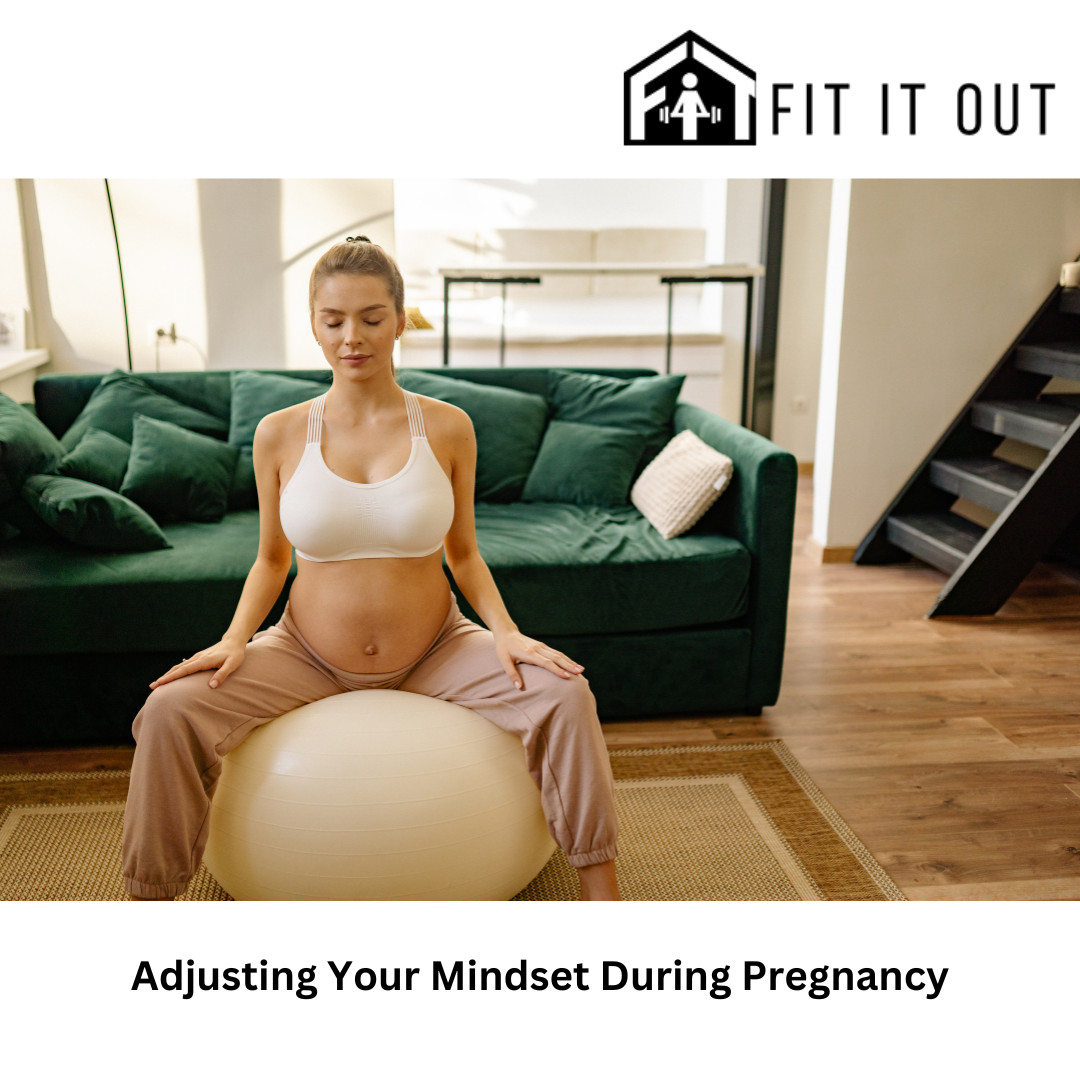
Adjusting Your Mindset During Pregnancy
If you’re here reading this blog and you’re pregnant - congratulations! Pregnancy is a wild ride no matter how many times you’ve done it. I’d wager that if you are a part of the F.I.O community then fitness is a priority in your life and will continue to be during your pregnancy, which is amazing!
Gone are the days (for the most part), where pregnant women are told to “eat for two” or “don’t lift over X amount of weight”, the problem is the advice we’re getting now as active women isn’t much better, does “just keep doing what you’ve always done” or “just listen to your body”, ring any bells? The issue with these well meaning statements is two fold, for one, it’s ambiguous at best and two, it makes it seem as if you have to change nothing about how you’re training. I’m not just talking about what exercises you choose to do, which, any quick google search will give you an abundance of opinions and exercise modifications for training during pregnancy. I’m talking about the how; your intensity, duration, your mindset around how and why you are training. This is something that I don’t think is addressed nearly enough given the rise of women who are pursuing a high level of athleticism across their lifespan, including during pregnancy. As active women you know how important it is to have a well rounded training program and you don’t need to be convinced to workout, you love it, thrive off it, but, you may need some help adjusting how you think about your training now that you have this new life inside of you.
One of my favorite concepts from my pregnancy and postpartum athleticism certification was the concept of Athlete Brain. Now you might not identify with the word athlete, but the definition of the term athlete brain, as coined by Brianna Battles is:
“Athlete brain is the intrinsic motivation to challenge, pursue and perform. It can be on a spectrum of “type A” personality, characteristics of how one identifies, and is often driven by competitiveness, ego, fear, anxiety, success, energy, routine and capability.”
If any of that statement struck a chord with you, keep reading.
When we’re talking about adjusting our mindset during pregnancy, I like to consider a few guiding principles.
Guiding Principle #1 - What am I training for?
- Do you have a specific event that you need to perform at in order to make a living? Or are you training to be as strong as possible, for as long as possible in the body you have? Why you are training, should greatly impact the how.
- You need to get real with yourself, or at least find a coach who will get real with you, about why you are training. If you’re training for longevity in life, then how you train during this time period can either help or hinder you in the long term.
Guiding Principle #2 - “Can I” versus “Should I?”
- Just because you can still squat 200lbs well into your pregnancy, does that mean you should? I don’t know, each person and each scenario is different, while I wouldn’t work solely off percentages during pregnancy and would lean more towards using the RPE scale, if 200lbs is well below your 1RM and you are able to perform it with relative ease and no discomfort, then maybe you do continue to squat that load. Now is not the time to aim for new PR’s but each person's threshold will be different
- Remember that you already have a significant increase in demand on your pelvic floor, while some women might feel fine to still lift relatively heavy, and jump or run, it doesn’t mean we all will. And even if it does feel okay, is it imperative to you that you continue to do “X” exercise right up until birth? That’s something you’ll have to consider and decide for yourself.
- A good guide here can be that little voice inside your head, the one that tells you to “just keep going” in the middle of a really hard workout, and the one you normally tune out. Well if right now that little voice is saying “hmmm, should I lift this weight?” You may already have your answer! Now is the time to tune into that little voice and respect it, that intrinsic drive to compete and perform will still be with you after you’ve had your baby. It’s inside of you and you won’t lose it, but now is a great time to mature as an athlete and as a woman, to preserve your long term strength and abilities.
Guiding Principle #3 - This isn’t forever.
- Pregnancy, in the grand scheme of things, is a very short time - although the last few weeks of the third trimester feel absolutely endless.
- What you’re doing now, isn’t how you’ll have to train for the rest of your life, and if you respect the changes that your body is going through right now, rest and give yourself time to heal afterwards, you can come out the other side so much stronger.
- No one is exempt from the changes that pregnancy can have on our bodies, while we are all impacted differently, taking an educated and proactive approach to training in pregnancy can set you up for a smoother postpartum experience - regardless of your birth method.
So, you’ve read through the guiding principles and feel like you could use some more help to navigate your changing training needs, where do you turn?
Thankfully, we have lots of options for support! If you are an athlete who regularly attends in-person classes (think Crossfit, F45 etc.) and you want to stay in classes, (which I am definitely an advocate for staying with your people, provided you have the support to adjust training during this time), you could consider doing a 1 off consult with a certified coach (find a map of all PPA coaches here), a pelvic floor physiotherapist, or another women’s health professional (chiropractor) who is knowledgeable about the type of training you do, or is at bare minimum willing to learn. During a consultation you can typically expect to go through your training history, talk about how you’ve been feeling during your pregnancy thus far, whether you’ve been experiencing any symptoms of a pelvic floor dysfunction (stress/urge incontinence, pelvic heaviness, pelvic pain, low back pain etc.), and then from there you will hopefully do a movement assessment to see what your tendencies are when you are exercising. This is the key piece! This will allow the coach/provider to give you real time feedback on how to adjust your breath, your positioning within the movement and or maybe having a discussion with you about when you should consider removing certain movements from your programming. This can be hugely beneficial especially if you feel that you are generally quite knowledgeable about exercise and your body. This type of consultation can give you added confidence and education to help you make guided decisions that are personally tailored to you and your goals, during this time. It is also hugely beneficial to build these types of relationships during pregnancy so you have already built up trust with a professional who can help you return to sport and exercise postpartum.
Another option, especially if you are a home gym athlete and want a bit more consistent guidance, would be to consider purchasing a “done for you” program that blends a comprehensive training program with education around pregnancy and birth, including mindset considerations, prehabilitation for the core/pelvic floor and positional stretching or strengthening for an improved labor and delivery. I’ve linked a few of my favorite programs below, personally I used Brianna Battles Pregnant Athlete training program, which included 37 weeks of programming along with a ton of educational videos on adjusting breathing, mindset and included prehab with every workout. These programs are a great investment and typically don’t expire - meaning you’ll have them available to you for multiple pregnancies, and you’ll get access to the newest version when they are updated.
The Pregnant and Postpartum Athlete - Programs
I hope you found some helpful takeaways from this post, and that you feel more confident navigating your current training needs. If you have any questions related to this post or any other pregnancy or postpartum training related questions please email hlepagefitness@gmail.com.




